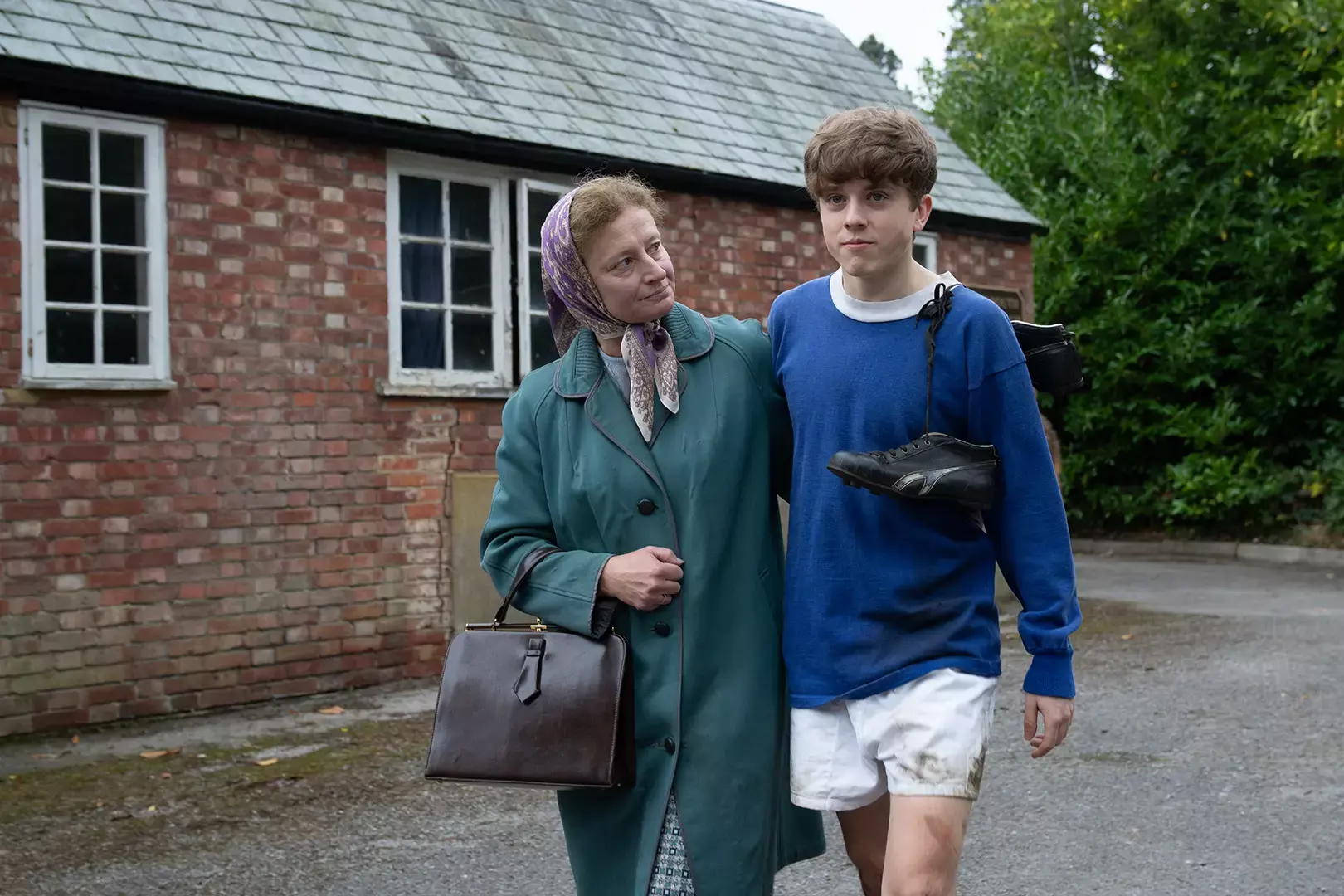“There is always so much that we do not know—for every fact we have at our disposal -- the date on the calendar, the safe route home; there are a thousand more we must learn. Who is it that needs us? How can we help? Where is our journey taking us, and why? Which tools should we carry and how do we deploy them? It can be a lifetime before the questions cease. And when silence comes it is not because we now have all the answers, it is because the answers DO NOT matter anymore – there’s another truth and it is absolute."
Episode 6 dealt with the death of Gladys Bell’s father and then the discovery of her health challenges. Additionally, Shelagh and the Singing School work on their performance while Cyril and Rosalind assist Deidre after she abandons her two young children. Matthew has to come clean as his financial failures leave him jobless and kicked off the board. Last, but not least, the student midwives pass their exams – both Joyce and Rosalind officially join our midwifery team!
As a Modern Day Midwife, something really struck me with the scenes regarding Gladys' father’s death — specifically, the holding of space with the nurses and Sister Monica Joan. It had me reflecting on things that are similar and things that seem as if they have altered. That holding of space and hospice care is something so special. I recently read that the majority of Americans (80%) prefer to stay at home and to be cared for and die at home; yet, only 36% receive hospice care. That shocked me. I have had friends who have used hospice care through their transition to the afterworld and I have had family members, my aunt Sandra included, who have been volunteers for hospice and held that sacred space for individuals.
I decided to explore a little about hospice and found that the word is derived from the Latin word “hospes.” Hospes means “guest” and “host.” I read that since the 11th century, this concept was adopted to refer to a place of hospitality for the sick, dying, travelers and pilgrims. It is believed that hospice care started during the Crusades and became widespread in the Middle Ages. Initially, it was through religious orders, but then as religious orders spread out, their usage decreased.
It was a British physician, Dame Cicely Sanders, who introduced the modern idea of hospice care as an approach to “end-of-life” care. Dame Cicely Saunders was a nurse and then became a doctor. She started her work with terminally ill patients in London in 1948. She lectured at Yale University in the early 1960s and introduced this concept of specialized care that focused on palliative care instead of treatments aimed at a cure. It was not until 1967 that St. Christopher’s Hospice was founded by Dr. Saunders. This was the first hospice in the UK (built in London) for terminally ill patients. In 1968 the Dean from Yale took a sabbatical to learn and work at St. Christopher’s Hospice in London.
I remember learning about Dr. Elisabeth Kubler-Ross and her book which was published in 1969 entitled On Death and Dying. She advocated for the benefits of home care over institutional care for the terminally ill. She wrote of dying with dignity and advocated for one's right to make decisions on how and where you want to approach end-of-life care.
The first hospice in the US was not until 1974 in Branford, Connecticut, Connecticut Hospice. Legislation was also introduced for funding hospice programs; however, it failed and it was not until 1982 that Congress included a provision for Medicare hospice benefits. As of 2023, there are 8,796 Hospices & Palliative Care Centers businesses in the United States assisting approximately 1.7 million beneficiaries in at least one or more days.
As a midwife, I have always felt that both birth and death are sacred events and an honor to be present at and bear witness to this shifting of the world’s energy. It is a threshold that we all pass into this world and again when we leave this realm. In the episode, I so respected how Sister Monica Joan and Phyllis were caretakers – showed respect, were in reverence to what was happening, prayed, and permitted Gladys to take that needed time to grieve. Sister Monica Joan gave needed advice by stating, “In the wake of loss – however foreseen – it is wise to pause and grieve with those we love.”
For those who have lost people, grief can be so painful —taking that time and connecting with loved ones (at times, for many connecting spiritually) can help with processing. We have a journey through life; however, we can plan for a good passing and death as well. I do find some of the rituals surrounding death to be comforting and help to bear witness to a life lived!
The storyline with Gladys’ father and the asbestos is a pertinent one as many individuals are facing environmental challenges that impact their health. Sister Monica Joan did what we all should do: took the time to explore ways to connect and inspire as Gladys processed the diagnosis and faced her treatments. “Beware for I am fearless and therefore powerful” ….the words underlined from a treasured book encouraged the character to face her own health and mortality.
“Is any pleasure simple in the end? A smile can be the foot of terror and of courage. Our happiness is often rooted in its opposite -- the threats that rocked us but did not come to pass. The loss of urgent; the tears we did not cry. But if our shadows fall behind us – they can also lie ahead --watching, waiting for their turn … undercover of the sunshine.”
RESOURCES
